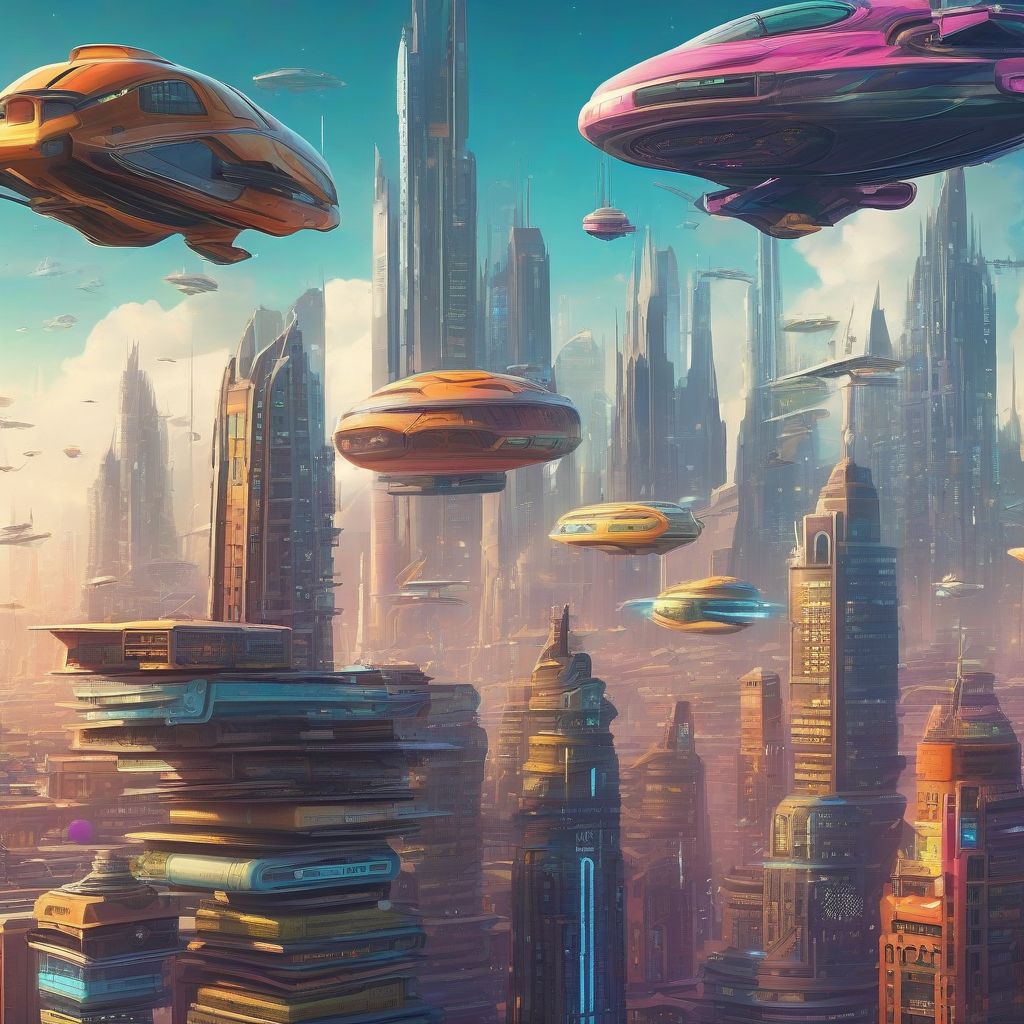Have you ever dreamt of traveling through time, exploring distant galaxies, or encountering alien lifeforms? Science fiction invites us to do just that, but beyond the fantastical settings and technologies lie profound themes and concepts that resonate with the human experience. Exploring these hidden depths is the key to unlocking the true power of science fiction literature.
Diving Deep: Methods for Uncovering Meaning
1. Question Everything:
Don’t just accept the story at face value. Ask questions about the world-building, the characters’ motivations, and the underlying societal structures.
- Why is this particular technology so crucial to the plot?
- What are the ethical implications of the choices characters make?
- Is the author critiquing our present-day world through a futuristic lens?
For example, in Ursula K. Le Guin’s “The Left Hand of Darkness,” the absence of fixed genders challenges our assumptions about sex, power, and social norms.
2. Identify Recurring Themes:
Science fiction often grapples with universal themes like:
- The Human Condition: What does it mean to be human, especially in the face of technological advancement or alien encounters?
- Social Commentary: How do authors use futuristic societies to critique present-day issues like inequality, environmentalism, or political systems?
- The Nature of Reality: Science fiction can explore alternate realities, questioning our perceptions of time, space, and consciousness.
3. Analyze Symbolism and Metaphor:
Science fiction writers are masters of using symbolic language and imagery to convey deeper meaning.
- A spaceship might represent humanity’s drive for exploration or our potential for both progress and destruction.
- Alien creatures often embody our fears and anxieties about the unknown.
- Dystopian societies can serve as cautionary tales about the consequences of unchecked power or technological overreach.
4. Engage with Literary Devices:
Pay attention to how authors use literary techniques like:
- Foreshadowing: Hints or clues about future events, often creating suspense or raising questions about the characters’ fates.
- Irony: A contrast between expectation and reality, often used to highlight social hypocrisy or the unforeseen consequences of actions.
- Satire: The use of humor to criticize societal norms or human behavior, encouraging reflection and potential change.
By recognizing these devices, you can gain a deeper appreciation for the author’s craft and message.
Connecting the Dots: Finding Relevance to Our World
1. Draw Parallels to Current Events:
Science fiction often serves as a mirror reflecting our anxieties and aspirations. Look for connections between the themes of the book and current events or social issues.
- Margaret Atwood’s “The Handmaid’s Tale” has chilling resonance with contemporary debates about women’s rights and bodily autonomy.
- The rise of artificial intelligence in fiction, as seen in works like “Ex Machina,” fuels ongoing conversations about the ethics of technology and the future of work.
2. Consider Different Perspectives:
Science fiction often challenges our preconceived notions and forces us to see the world from different perspectives. Try to understand the motivations and challenges of characters who are unlike yourself, whether they are aliens, robots, or humans living in drastically different societies.
3. Spark Your Imagination:
Science fiction, at its core, is about exploring possibilities. Use the ideas presented in the book as a springboard for your imagination.
- What would you do if faced with similar ethical dilemmas?
- How do you think humanity will navigate the challenges and opportunities presented by technological advancements?
Resources for Further Exploration:
To further enhance your exploration of science fiction literature, consider these resources:
- Literary Criticism: Seek out essays, articles, and books that analyze specific science fiction works or authors.
- Online Forums and Communities: Engage with other fans and enthusiasts to discuss your interpretations and discover new perspectives.
- Author Interviews and Podcasts: Listen to authors discuss their creative processes and the inspirations behind their work.
- Related Genres: Explore other genres with overlapping themes, such as fantasy, horror, and dystopian fiction.
 Science Fiction Books and Cityscape
Science Fiction Books and Cityscape
Conclusion: Embracing the Journey of Discovery
Exploring the themes and concepts of science fiction literature is a rewarding journey. By approaching these works with a critical and curious mind, you can uncover deeper layers of meaning, connect with timeless human experiences, and challenge your own perspectives on the world around you. So, dive into the pages of a science fiction book and prepare to be amazed by the power of imagination and the enduring relevance of this captivating genre. And if you’re eager to delve into the profound impact of science fiction on literature, explore these insightful articles: The Influence of Science Fiction Authors on Modern Literature, The Most Influential Science Fiction Books of All Time – Reviews and Insights.
[amazon bestseller=”science fiction”]
